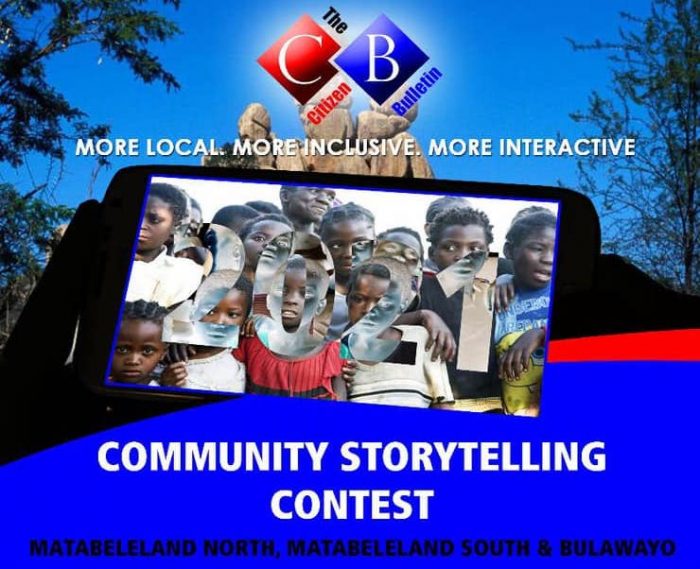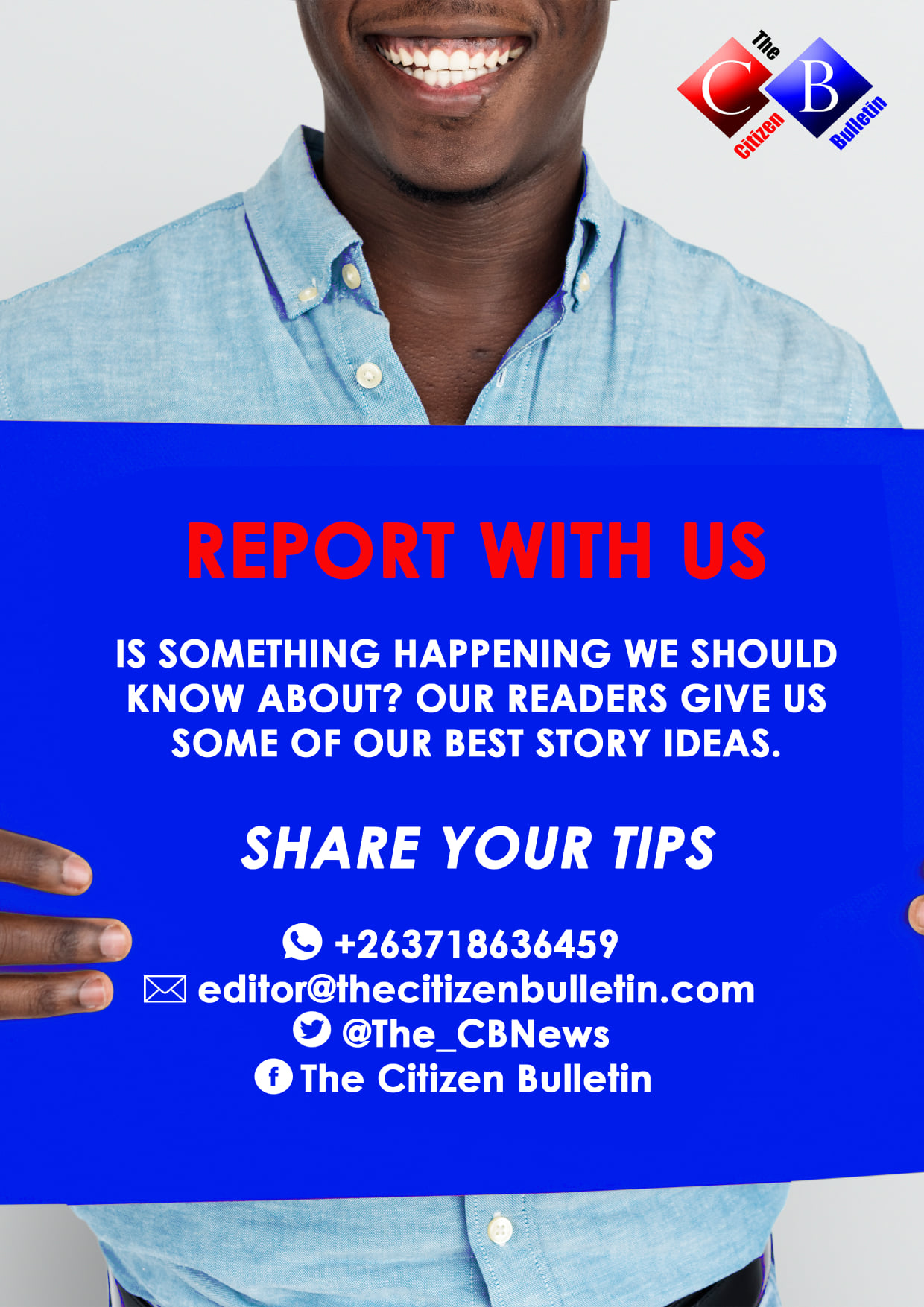
Two years ago, I spent an academic year at Stanford studying sustainable models for hyperlocal news as a John S. Knight (JSK) Journalism Fellow. Prior to that, I had been running a hyperlocal news venture serving news desert communities in Matabeleland, southwestern Zimbabwe. My goal as a JSK Fellow was to learn how to make a local news venture operationally sustainable, with a diverse revenue base, a loyal audience, and dynamic content.
 Zimbabwe’s local media has been dominated by national news since the country gained its independence in 1980. That’s left local communities in news deserts, unable to make decisions about their local governments or contribute meaningfully to important national conversations. The Citizen Bulletin, a digital newsroom I co-founded in 2017, was created to provide relevant local news to the underserved communities of Matabeleland.
Zimbabwe’s local media has been dominated by national news since the country gained its independence in 1980. That’s left local communities in news deserts, unable to make decisions about their local governments or contribute meaningfully to important national conversations. The Citizen Bulletin, a digital newsroom I co-founded in 2017, was created to provide relevant local news to the underserved communities of Matabeleland.
Over the past few years, Zimbabwe’s local news ecosystem has improved somewhat, and a number of independent news sites producing local and national news have launched. Still, they face uncertain futures because they are struggling to become sustainable. The Citizen Bulletin is no exception. When we received our first grant in 2017, we believed grant funding would become our sole revenue source. But a few years later, it is becoming increasingly clear that philanthropy alone cannot sustain news.
In October 2020, in the middle of the Covid-19 pandemic, I was thinking about where to get my next grant to sustain operations at The Citizen Bulletin. The Bulletin had had a wonderful year and received several grants to cover the pandemic, and our team had doubled. Expectations for another successful year from the team were high. In Zimbabwe, journalism funding is scarce, and the few donors that exist often prefer to fund bigger, national media organizations.
Luckily, in early November, I stumbled upon a call for funding from the Membership Puzzle Project. At Stanford, I’d read about how MPP was helping news organizations across the U.S. experiment with reader revenue. MPP was looking for organizations across the world that wanted to launch membership programs for their newsrooms. The Citizen Bulletin desperately needed funding for the upcoming year, and also needed a way out of over-reliance on grant funding. In 2021 we became the first Zimbabwean newsroom to embark on the journey of membership in news.
We were completely new to the territory. We had to try, make mistakes, and learn as we moved. We learned from the Daily Maverick, a South African news outlet that had launched a successful membership program two years earlier, and applied some tactics in our newsroom. Everyone within our local news ecosystem began to marvel at us as our team started throwing around terms like “memberful routines,” “ladder of engagement,” and “audience funnel.” We were and are still convinced that we are on the right path, but perhaps what we had overlooked is that Zimbabwe’s media is not ripe for a paid membership program.
Zimbabwe’s government maintains tight control over legacy media, and the country’s media laws curtail free expression. Local audiences often perceive news gathering and reporting as factory processes. It’s hard to convince them to actively participate in storytelling. Many readers cannot afford newspapers or pay for stable internet service to read the news online. News comes to them through old newspapers or is sent via text, PDFs, JPEGs, or video on WhatsApp.
Uncertain about whether my team and I were doing the right thing with membership, I applied to the Entrepreneurial Journalism Creators Program, a 100-day online course at the Craig Newmark Graduate School of Journalism at CUNY. My goal was twofold: I wanted to take a break to do something different. I also wanted to better understand the membership economy, learn what others in different media markets are doing, and possibly replicate in my newsroom tactics that work.While membership programs often emphasize monetization, one important idea I learned in the program is that for news outlets like ours, membership is more about building relationships with our audience. For audiences that have always known closed journalism that shuts out alternative voices, as is often the case in Zimbabwe, finding a news outlet that allows them to share their story ideas, freely interact with reporters, and/or give feedback on stories is priceless.
 Ultimately, this is the kind of membership in news that The Citizen Bulletin has pioneered in Zimbabwe. It’s not based on cash, but on the value our audiences derive from our participatory journalism and the value they give back to us by sharing story ideas, re-sharing our content, or attending our events.
Ultimately, this is the kind of membership in news that The Citizen Bulletin has pioneered in Zimbabwe. It’s not based on cash, but on the value our audiences derive from our participatory journalism and the value they give back to us by sharing story ideas, re-sharing our content, or attending our events.
My advice for those who wish to launch membership models in complicated media markets like Zimbabwe is to invest in a money-less membership program first, and to focus on media literacy as they build the case for a paid membership. I believe that revenue strategies such as membership, events, or merchandise sales — which seem to work elsewhere — need more iteration here. When it comes to membership, or any other revenue model, there’s no one-size-fits-all approach.
Creators from the Global South may also feel pressure to replicate models from the Global North, where media markets are more supportive of experimentation and possible failure. In the global south, Zimbabwe included, I’ve found most grant funders confuse iteration with failure.
This is a call to all local entrepreneurial journalism creators to be “The Phoenix Rising” of our local journalism. This is the second year since my newsroom, The Citizen Bulletin, adopted a “memberful” approach to journalism. While we are yet to unlock funding from our members, the support we are getting in terms of story ideas, event attendance, content sharing, and feedback on our stories is priceless.
Divine Dube is the cofounder and CEO of The Citizen Bulletin. A version of this post originally ran on Medium.